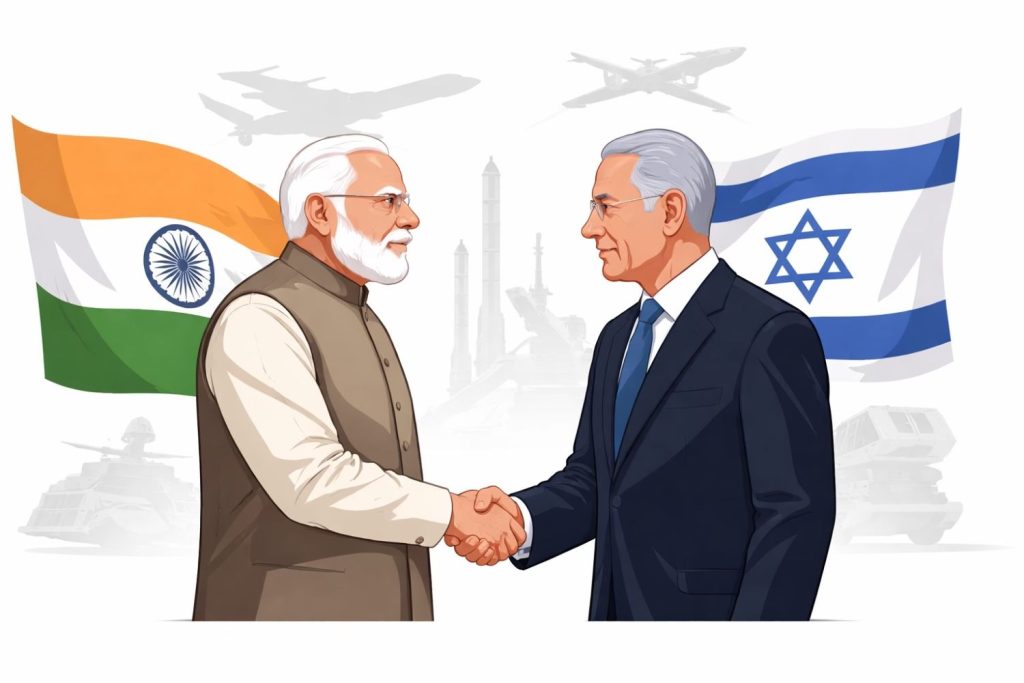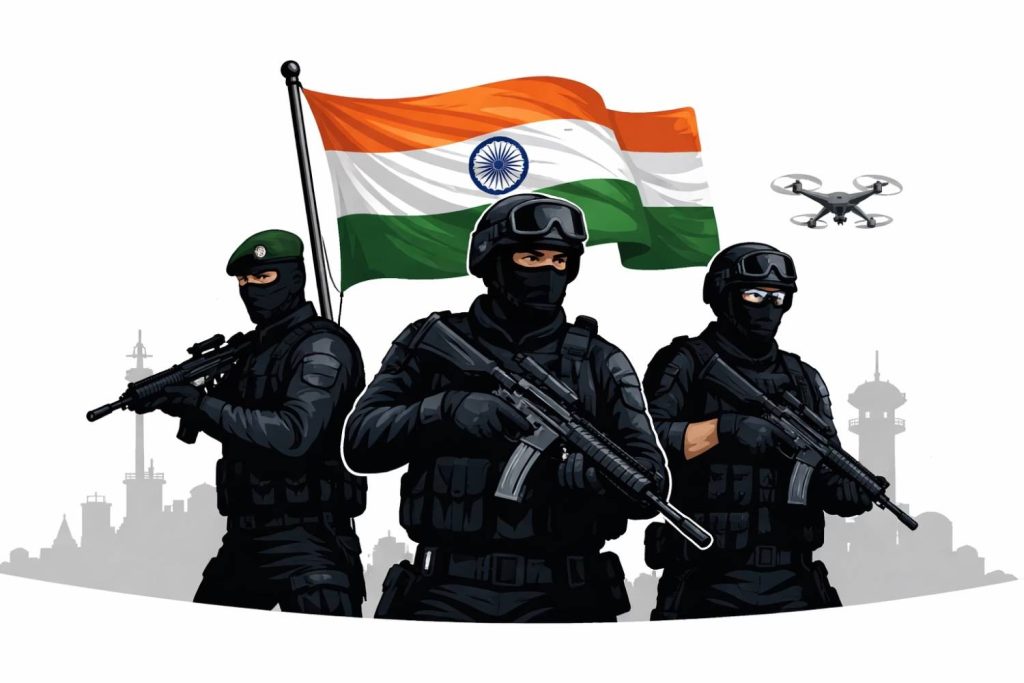India, with its burgeoning economy and vast market potential, has become a hub for numerous multinational corporations (MNCs). These companies span various industries, contributing significantly to the country’s economic growth and providing employment opportunities. Below, we delve into the top 10 multinational companies in India, exploring their unique offerings, growth trajectories, and impact on the industry.
Table of Contents
1. Tata Consultancy Services (TCS)
Description:
Tata Consultancy Services, part of the Tata Group, is a leading IT services, consulting, and business solutions organization. It has a strong presence in India and operates globally, providing a range of IT services.
Key Features:
- IT Services: Extensive portfolio including IT consulting, business solutions, and outsourcing.
- Global Presence: Offices and clients across multiple countries.
- Innovation: Focus on digital transformation and innovation.
Detailed Table:
| Aspect | Details |
|---|---|
| Founder | J.R.D. Tata |
| Founded Year | 1968 |
| Headquarters | Mumbai |
| Industry | IT Services, Consulting |
| Revenue | $25 billion+ (2023) |
| Employees | 500,000+ |
| Notable Clients | Fortune 500 companies |
| Key Services | IT consulting, Business solutions, Outsourcing |
| Unique Selling Point | Comprehensive IT solutions and global reach |
Summary:
TCS is a global leader in IT services, known for its robust service offerings and innovative approach, making it a key player in India’s IT sector.
2. Reliance Industries
Description:
Reliance Industries Limited (RIL) is a diversified conglomerate with interests in petrochemicals, refining, oil, telecommunications, and retail. It is one of India’s largest companies by market capitalization.
Key Features:
- Diversified Portfolio: Engages in petrochemicals, refining, oil exploration, telecom, and retail.
- Innovative Ventures: Pioneered Jio, revolutionizing India’s telecom sector.
- Market Leader: Dominant presence in multiple industries.
Detailed Table:
| Aspect | Details |
|---|---|
| Founder | Dhirubhai Ambani |
| Founded Year | 1966 |
| Headquarters | Mumbai |
| Industry | Petrochemicals, Refining, Telecom, Retail |
| Revenue | $90 billion+ (2023) |
| Employees | 200,000+ |
| Notable Ventures | Jio, Reliance Retail |
| Key Services | Oil & Gas, Telecommunications, Retail |
| Unique Selling Point | Extensive market reach and diversification |
Summary:
Reliance Industries’ diversified business model and innovative ventures have solidified its position as a powerhouse in India’s corporate landscape.
3. Infosys
Description:
Infosys is a global leader in consulting, technology, and next-generation services. Headquartered in Bengaluru, it offers a range of IT services and solutions to clients worldwide.
Key Features:
- IT Services: Specializes in consulting, technology, and outsourcing.
- Global Delivery Model: Efficiently delivers services to clients across the globe.
- Innovation Focus: Invests heavily in digital transformation and AI.
Detailed Table:
| Aspect | Details |
|---|---|
| Founders | N.R. Narayana Murthy, Nandan Nilekani |
| Founded Year | 1981 |
| Headquarters | Bengaluru |
| Industry | IT Services, Consulting |
| Revenue | $15 billion+ (2023) |
| Employees | 300,000+ |
| Notable Clients | Global 2000 companies |
| Key Services | IT consulting, Business solutions, Outsourcing |
| Unique Selling Point | Strong focus on innovation and digital transformation |
Summary:
Infosys is renowned for its strong emphasis on innovation and digital transformation, making it a key player in the global IT services market.
4. Hindustan Unilever Limited (HUL)
Description:
Hindustan Unilever Limited is the Indian subsidiary of Unilever, a British-Dutch multinational. It is a leading FMCG company in India, offering a wide range of consumer goods.
Key Features:
- Diverse Portfolio: Offers products in categories like personal care, food, and home care.
- Market Leadership: Dominant market share in multiple product segments.
- Sustainability Focus: Committed to sustainable business practices.
Detailed Table:
| Aspect | Details |
|---|---|
| Parent Company | Unilever |
| Founded Year | 1933 |
| Headquarters | Mumbai |
| Industry | FMCG |
| Revenue | $6 billion+ (2023) |
| Employees | 20,000+ |
| Key Brands | Dove, Lipton, Surf Excel |
| Key Services | Personal care, Food, Home care |
| Unique Selling Point | Strong brand portfolio and sustainability initiatives |
Summary:
HUL’s extensive product portfolio and commitment to sustainability have established it as a leader in India’s FMCG sector.
5. Samsung India
Description:
Samsung India, a subsidiary of the South Korean conglomerate Samsung, is a major player in the consumer electronics market in India. It offers a wide range of products, including smartphones, home appliances, and televisions.
Key Features:
- Electronics Leader: Offers a broad range of consumer electronics and home appliances.
- Innovation: Focuses on cutting-edge technology and innovation.
- Strong Presence: Extensive distribution network across India.
Detailed Table:
| Aspect | Details |
|---|---|
| Parent Company | Samsung Electronics |
| Founded Year | 1995 |
| Headquarters | Gurugram |
| Industry | Consumer Electronics |
| Revenue | $10 billion+ (2023) |
| Employees | 20,000+ |
| Key Products | Smartphones, Televisions, Home Appliances |
| Unique Selling Point | Innovative products and strong brand presence |
Summary:
Samsung India’s innovative products and strong market presence make it a leading player in the consumer electronics industry in India.
6. IBM India
Description:
IBM India is a subsidiary of International Business Machines Corporation (IBM), a global technology and consulting company. It offers a wide range of IT services and solutions, including cloud computing, AI, and enterprise services.
Key Features:
- IT Services: Extensive offerings in IT consulting, cloud services, and AI.
- Innovation: Focus on cutting-edge technology and digital transformation.
- Global Reach: Part of IBM’s global network of service delivery.
Detailed Table:
| Aspect | Details |
|---|---|
| Parent Company | IBM Corporation |
| Founded Year | 1992 |
| Headquarters | Bengaluru |
| Industry | IT Services, Consulting |
| Revenue | $5 billion+ (2023) |
| Employees | 100,000+ |
| Key Services | Cloud computing, AI, IT consulting |
| Unique Selling Point | Advanced technology solutions and global expertise |
Summary:
IBM India’s focus on advanced technology solutions and digital transformation positions it as a key player in the Indian IT services market.
7. Accenture India
Description:
Accenture India is the Indian arm of Accenture, a global professional services company. It provides a wide range of services, including consulting, technology, and outsourcing, across various industries.
Key Features:
- Consulting Services: Extensive expertise in consulting and strategy.
- Technology Integration: Offers technology solutions and outsourcing services.
- Industry Focus: Serves multiple industries with tailored solutions.
Detailed Table:
| Aspect | Details |
|---|---|
| Parent Company | Accenture |
| Founded Year | 1989 |
| Headquarters | Bengaluru |
| Industry | Consulting, Technology Services |
| Revenue | $8 billion+ (2023) |
| Employees | 200,000+ |
| Key Services | Consulting, Technology, Outsourcing |
| Unique Selling Point | Comprehensive service offerings and industry expertise |
Summary:
Accenture India’s broad service offerings and industry expertise make it a prominent player in the professional services sector in India.
8. Nestle India
Description:
Nestle India, a subsidiary of the Swiss multinational Nestle, is a leading player in the FMCG sector. It offers a range of food and beverage products, including dairy, nutrition, and confectionery.
Key Features:
- Diverse Product Range: Offers a wide variety of food and beverage products.
- Brand Leadership: Strong brands like Maggi, Nescafe, and KitKat.
- Quality Focus: Commitment to high-quality and nutritious products.
Detailed Table:
| Aspect | Details |
|---|---|
| Parent Company | Nestle |
| Founded Year |
1961 |
| Headquarters | Gurgaon |
| Industry | FMCG |
| Revenue | $2 billion+ (2023) |
| Employees | 8,000+ |
| Key Brands | Maggi, Nescafe, KitKat |
| Key Services | Food and Beverage |
| Unique Selling Point | Strong brand portfolio and commitment to quality |
Summary:
Nestle India’s strong brand portfolio and commitment to quality make it a leader in the Indian FMCG sector.
9. Microsoft India
Description:
Microsoft India is the Indian subsidiary of Microsoft Corporation, a global leader in software, services, devices, and solutions. It offers a range of products and services, including cloud computing, software development, and IT services.
Key Features:
- Software Leadership: Dominant in operating systems, productivity software, and cloud services.
- Innovation: Focus on cutting-edge technology and digital transformation.
- Global Expertise: Part of Microsoft’s global network of innovation.
Detailed Table:
| Aspect | Details |
|---|---|
| Parent Company | Microsoft Corporation |
| Founded Year | 1990 |
| Headquarters | Hyderabad |
| Industry | Software, IT Services |
| Revenue | $7 billion+ (2023) |
| Employees | 15,000+ |
| Key Products | Windows, Office, Azure |
| Unique Selling Point | Leading software solutions and cloud services |
Summary:
Microsoft India’s leading software solutions and focus on digital transformation make it a key player in the Indian IT sector.
10. Amazon India
Description:
Amazon India, a subsidiary of the American multinational Amazon, is a leading e-commerce platform in India. It offers a wide range of products, including electronics, fashion, and groceries, along with services like Amazon Prime.
Key Features:
- E-commerce Leadership: Extensive product range and customer base.
- Innovative Services: Amazon Prime, AWS, and more.
- Customer Focus: Strong emphasis on customer satisfaction and convenience.
Detailed Table:
| Aspect | Details |
|---|---|
| Parent Company | Amazon |
| Founded Year | 2013 |
| Headquarters | Bengaluru |
| Industry | E-commerce |
| Revenue | $10 billion+ (2023) |
| Employees | 100,000+ |
| Key Services | Online retail, AWS, Prime |
| Unique Selling Point | Extensive product range and innovative services |
Summary:
Amazon India’s extensive product range and innovative services have made it a leader in the Indian e-commerce market.
FAQs(Top 10 Multinational Companies in India)
1. What are multinational companies (MNCs)?
Multinational companies (MNCs) are corporations that operate in multiple countries. They have facilities and assets in at least one country other than their home country and often have a centralized head office where they coordinate global management.
2. Why are MNCs important for India’s economy?
MNCs contribute to India’s economy by creating jobs, introducing new technologies, fostering international trade, and generating significant revenue. They also help in improving the country’s infrastructure and skill levels.
3. How do MNCs benefit from operating in India?
MNCs benefit from India’s large and growing consumer market, competitive labor costs, skilled workforce, and favorable business environment. They also gain access to regional markets and opportunities for innovation and expansion.
4. What challenges do MNCs face in India?
MNCs in India may face challenges such as regulatory complexities, bureaucratic hurdles, cultural differences, and infrastructure limitations. Navigating the diverse and dynamic market conditions can also be challenging.
5. How do MNCs impact local businesses in India?
MNCs can have both positive and negative impacts on local businesses. While they can create competition and drive innovation, they can also lead to market consolidation, which might affect smaller local businesses.
Conclusion(Top 10 Multinational Companies in India)
The presence of multinational companies in India has had a profound impact on the country’s economic landscape. These companies bring in significant investments, introduce cutting-edge technologies, and create numerous employment opportunities. By operating in diverse sectors such as IT services, consumer electronics, FMCG, and e-commerce, MNCs have contributed to the overall growth and development of India.




